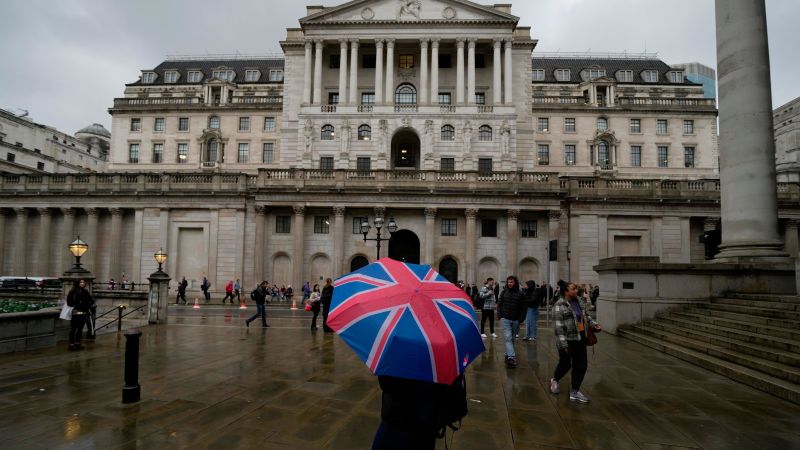London
CNN
—
Central banks in Europe on Thursday joined the US Federal Reserve in slowing down the pace of interest rate hikes as decades-high inflation shows signs of easing.
The Bank of England and the European Central Bank both hiked rates by half a percentage point in their final meetings of the year. Previously, they had gone with increases of three-quarters of a percentage point.
But they insisted that the fight to tame inflation isn’t over, despite the risk that further rate hikes next year will pile pressure on a slowing economy.
The United Kingdom is already sliding into a recession, and Europe may not be far behind.
The ECB said GDP across the 19 countries that use the euro may contract this quarter and next due to high energy prices, ongoing uncertainty, weak global activity and tighter financial conditions.
According to the bank’s projections, a recession “would be relatively short-lived and shallow,” it added.
Both central banks indicated that they expect to keep hiking interest rates in the new year to keep inflation heading back down to their 2% targets.
“We have more ground to cover,” ECB President Christine Lagarde told journalists at a press conference, noting inflation “remains far too high and is projected to stay above the target for too long.”
The ECB’s estimates for inflation show it averaging 3.4% in 2024 and 2.3% in 2025.
Central bankers sought to make clear they were not changing course, sending a message to investors they aim to stay tough.
“We’re not pivoting,” Lagarde emphasized. “We’re not wavering.”
But early indications that prices are rising at a slower clip are allowing policymakers to start taking it easier, following an unprecedented sprint over the past 12 months.
Annual consumer inflation in the United Kingdom was 10.7% in November, down from 11.1% in October. In Europe, consumer prices rose 10% in the year to November compared to a record 10.6% in October.
The Bank of England has now raised borrowing costs at nine consecutive meetings starting in December 2021. Its larger hike in November was its biggest in 33 years.
The European Central Bank has increased rates four times in a row since July. It opted for larger hikes at its last two meetings.
The ECB also laid out plans to start reducing its holdings of bonds in March by about €15 billion ($16 billion) per month through the end of June.
The challenge for central bankers is to use its policy levers to slow consumer demand, helping to reduce inflation, but not to affect it so much that it then triggers a painful recession.
That task is made extra difficult by factors contributing to inflation. High energy prices exacerbated by Russia’s war in Ukraine are creating huge problems for Europe and the United Kingdom. But governments are committed to ending their reliance on Russia for oil and gas. That could make prices more volatile through next year.
Earlier this week, International Energy Agency chief Fatih Birol and European Commission President Ursula von der Leyen warned that Europe could face further shortages of natural gas in 2023.

